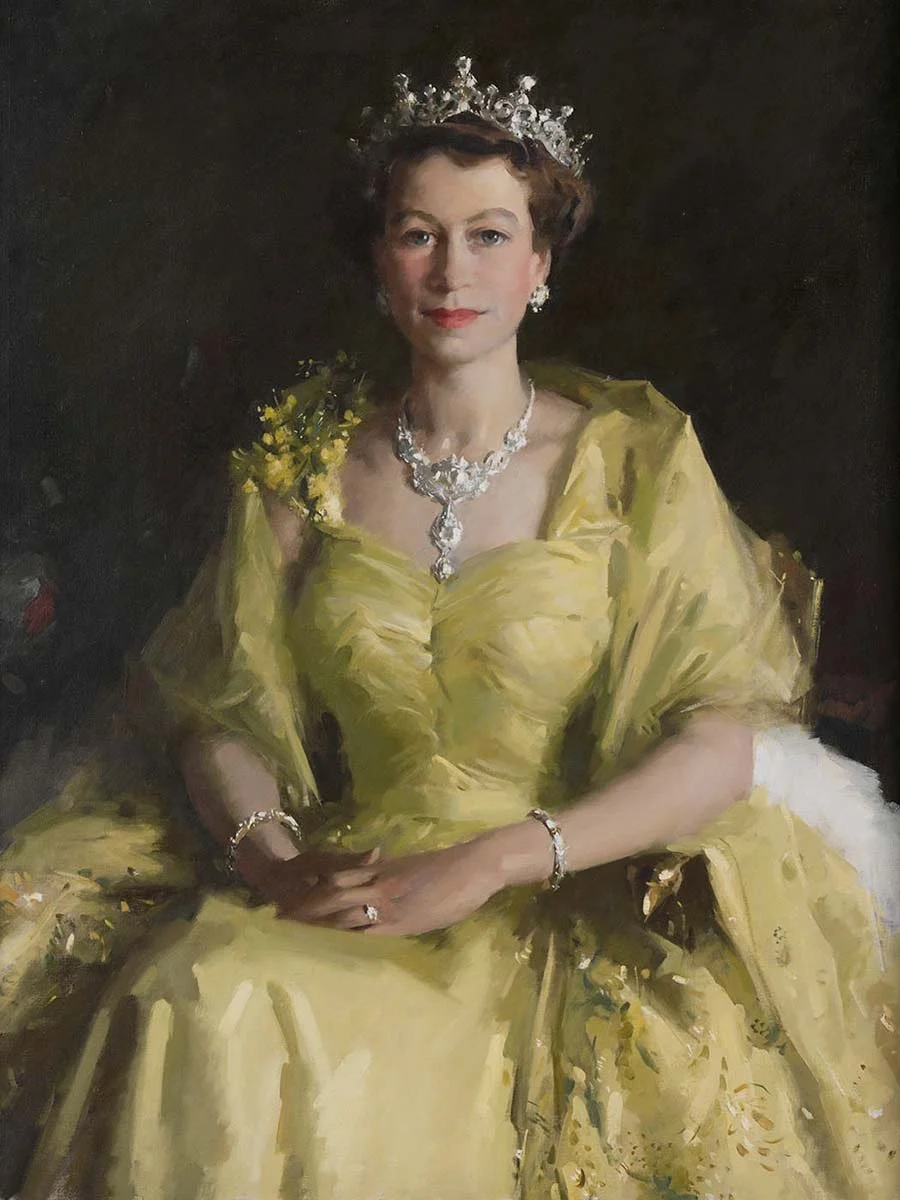Queen Elizabeth II wattle painting, Sir William Dargie, 1954
https://www.nma.gov.au/explore/collection/highlights/queen-elizabeth-ii-wattle-painting
Vale, Elizabeth II Regina - a shining, remarkable, singular life devoted to service, duty and the public good. I think Paul Keating and Boris Johnson - two leaders who couldn’t be more different in their politics, backgrounds, personalities, and attitudes to the monarchy - together best captured the significance of QEII’s life and passing (swipe right).
The late Queen’s legacy has prompted much reflection as we’ve witnessed the end of an historical epoch, or an unmooring from a different time and world, as if we were setting off into the open ocean of the future to meet all its vagaries, without QEII as a constant source of deep historical and cultural anchoring and context. It’s daunting to lose our connection with the generations who lived through the horrors of the 20th century, and to think about the immense challenges we face without their counsel and memory. I have reflected a lot on Yeats’ poem ‘The Second Coming’: especially the line “things fall apart; the centre cannot hold”.
Since the Queen’s passing, I’ve thought a lot about the respective virtues and limitations of constitutional monarchies and republics (in an Australian context and more generally); the positive legacies of the Crown as well as the ugly ones, namely the ongoing traumas and injustices caused by colonialism and the distortion wrought upon the lives of First Nations peoples in Australia; as well as the historical and sociological dimensions of monarchy - how extraordinary that it exists at all, its fascinating and deeply rooted rituals and history, and my distaste for a lot of its obscene privilege and its otherness from the demos, even though I love the pomp, ceremony, and hymns that go with it.
All of these mixed (contradictory) feelings and thoughts aside, on a personal and emotional level, I’ve always felt a deep affection and admiration for the late Queen and Australia’s constitutional arrangements. When I lived in China for 9 months, I blu-tacked some Australian coins to my bedroom wall, one with the Queen’s effigy facing outwards. Her visage and the symbol of the crown reminded me of everything I loved and was grateful for in Australia and our broader political, legal, and cultural inheritances, which contrasted so starkly with China’s hypersecular and totalitarian political system. Joining the reserves and pledging allegiance to the late Queen also meant a lot to me - even if my involvement to date has been very light touch and a small part of my life. It had resonances of a time where the refrain ‘for God, King, and Country’ meant more than it does today under the sterile arclights of modernity. Perhaps that’s the transfixing power of the Crown and the Queen’s legacy: it represents something transcendent, mysterious (even magical), and enduring, which defies logic by operating on an emotional, instinctive level, and which is beyond the transience of grasping politics and individual lives. In a world and culture which elevates the private self, appearances, celebrity, and materialism above all, the legacy of the Queen is worth paying heed to.
